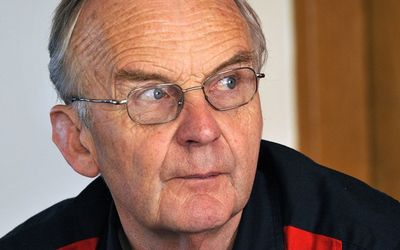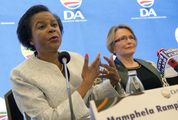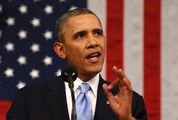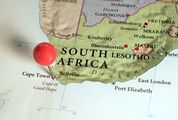THE Congress of South African Trade Unions (Cosatu) on Wednesday waded into the dispute between Independent News & Media South Africa (INMSA) and its suspended labour columnist Terry Bell, saying the suspension called into question the newspaper group’s transformation promises.
Mr Bell was told by Ellis Mnyandu, the editor of INMSA’s Business Report, that his "Inside Labour" column would be suspended as part of a strategic overhaul of the publication and a "recalibration" process.
However, Mr Bell has taken issue with this as he has been writing his Friday column for 18 years. It is published on his website after appearing in Business Report and is freely available for trade unions and nonprofit organisations.
Cosatu spokesperson Patrick Craven said on Wednesday that although the labour movement did not agree with everything Mr Bell wrote, and he did not always agree with Cosatu, he was the best labour reporter and analyst in the South African media, committed to revealing the truth about working-class life while exposing lies and hypocrisy.
Mr Craven said Cosatu agreed wholeheartedly with sentiments expressed by INMSA group executive editor Karima Brown and group opinion and analysis editor Vukani Mde in a column this week on proposals by Sekunjalo and INMSA chairman Iqbal Survé to make "changes to management, staff, the structure of the business, its growth strategies and targets, and even its editorial orientation".
Mr Craven said the labour movement agreed with Ms Brown’s and Mr Mde’s sentiments that the media continued to be controlled by a small but privileged racially defined minority.
"The private commercial media represent this minority’s economic and political interests, and present their world view as the unchallengeable norm, promoting their narrative of South Africa as the dominant, indeed the sole, narrative," Ms Brown and Mr Mde wrote in their column, published on Tuesday in the Cape Argus and other newspapers in the group.
Mr Craven said Cosatu also agreed with their condemnation of the minority-controlled mainstream media’s backlash against this restructuring plan, which "has been ferocious and tinged with racism".
The column to which Mr Craven was referring was part of a heated public debate in the pages of another INMSA newspaper, the Cape Times, between its senior editors following the dismissal of Cape Times editor Alide Dasnois in December.
Ms Brown’s and Mr Mde’s column ended with the clear message that those within the group who disagreed with the direction of the new owners were free to leave.
Mr Craven said he was keen to see the transformation of the INMSA newspapers and their new approach to the way issues were reported and discussed.
"But how on earth will this process be assisted by the suspension of Terry Bell, one of the most committed advocates of the transformation of the media and indeed society as a whole?" he said.
Mr Craven said no one had spoken more consistently and courageously against the "small but very privileged and racially definable minority" that dominated the South African economy, or campaigned more passionately in support of workers and the poor.
"He ought to be seen as one of the main driving forces behind the drive for transformation, and his suspension therefore raises questions about Survé’s seriousness about this pledge," he said.
Mr Bell said he was surprised and humbled by Cosatu’s support.
He has a long history of struggle credentials, as he originally joined the African National Congress in 1961 and spent 27 years in exile, including in the UK, Zambia and New Zealand. In the latter, he was instrumental in setting up one of the most effective anti-apartheid movements.
On Monday, suspended Cosatu general secretary Zwelinzima Vavi also criticised Mr Bell’s suspension.
Mr Vavi said that while he did not always agree with Mr Bell, the cancellation of his column would be a sad day for the country, "and when we count the moments when we started a slippery road to nowhere, we will count this as one of the most significant moments".
Dr Survé’s office had not responded to a request for comment at the time of publication.

Congress of South African Trade Unions spokesman Patrick Craven. Picture: FINANCIAL MAIL
THE Congress of South African Trade Unions (Cosatu) on Wednesday waded into the dispute between Independent News & Media South Africa (INMSA) and its suspended labour columnist Terry Bell, saying the suspension called into question the newspaper group’s transformation promises.
Mr Bell was told by Ellis Mnyandu, the editor of INMSA’s Business Report, that his "Inside Labour" column would be suspended as part of a strategic overhaul of the publication and a "recalibration" process.
However, Mr Bell has taken issue with this as he has been writing his Friday column for 18 years. It is published on his website after appearing in Business Report and is freely available for trade unions and nonprofit organisations.
Cosatu spokesperson Patrick Craven said on Wednesday that although the labour movement did not agree with everything Mr Bell wrote, and he did not always agree with Cosatu, he was the best labour reporter and analyst in the South African media, committed to revealing the truth about working-class life while exposing lies and hypocrisy.
Mr Craven said Cosatu agreed wholeheartedly with sentiments expressed by INMSA group executive editor Karima Brown and group opinion and analysis editor Vukani Mde in a column this week on proposals by Sekunjalo and INMSA chairman Iqbal Survé to make "changes to management, staff, the structure of the business, its growth strategies and targets, and even its editorial orientation".
Mr Craven said the labour movement agreed with Ms Brown’s and Mr Mde’s sentiments that the media continued to be controlled by a small but privileged racially defined minority.
"The private commercial media represent this minority’s economic and political interests, and present their world view as the unchallengeable norm, promoting their narrative of South Africa as the dominant, indeed the sole, narrative," Ms Brown and Mr Mde wrote in their column, published on Tuesday in the Cape Argus and other newspapers in the group.
Mr Craven said Cosatu also agreed with their condemnation of the minority-controlled mainstream media’s backlash against this restructuring plan, which "has been ferocious and tinged with racism".
The column to which Mr Craven was referring was part of a heated public debate in the pages of another INMSA newspaper, the Cape Times, between its senior editors following the dismissal of Cape Times editor Alide Dasnois in December.
Ms Brown’s and Mr Mde’s column ended with the clear message that those within the group who disagreed with the direction of the new owners were free to leave.
Mr Craven said he was keen to see the transformation of the INMSA newspapers and their new approach to the way issues were reported and discussed.
"But how on earth will this process be assisted by the suspension of Terry Bell, one of the most committed advocates of the transformation of the media and indeed society as a whole?" he said.
Mr Craven said no one had spoken more consistently and courageously against the "small but very privileged and racially definable minority" that dominated the South African economy, or campaigned more passionately in support of workers and the poor.
"He ought to be seen as one of the main driving forces behind the drive for transformation, and his suspension therefore raises questions about Survé’s seriousness about this pledge," he said.
Mr Bell said he was surprised and humbled by Cosatu’s support.
He has a long history of struggle credentials, as he originally joined the African National Congress in 1961 and spent 27 years in exile, including in the UK, Zambia and New Zealand. In the latter, he was instrumental in setting up one of the most effective anti-apartheid movements.
On Monday, suspended Cosatu general secretary Zwelinzima Vavi also criticised Mr Bell’s suspension.
Mr Vavi said that while he did not always agree with Mr Bell, the cancellation of his column would be a sad day for the country, "and when we count the moments when we started a slippery road to nowhere, we will count this as one of the most significant moments".
Dr Survé’s office had not responded to a request for comment at the time of publication.























Post a comment